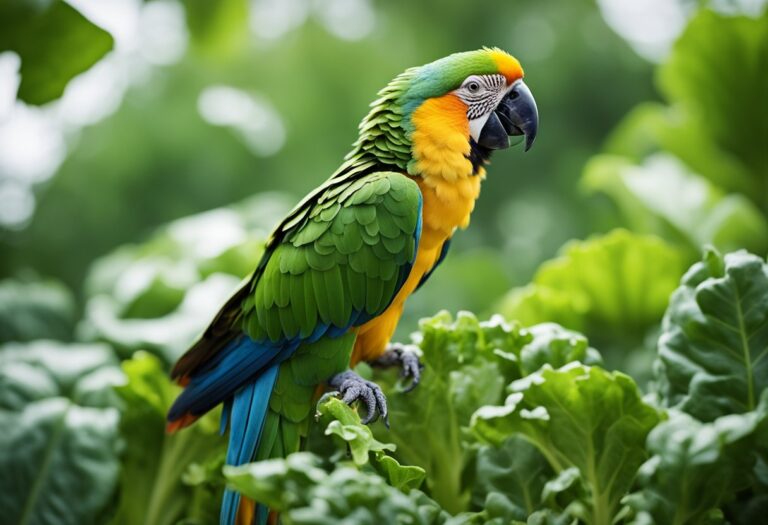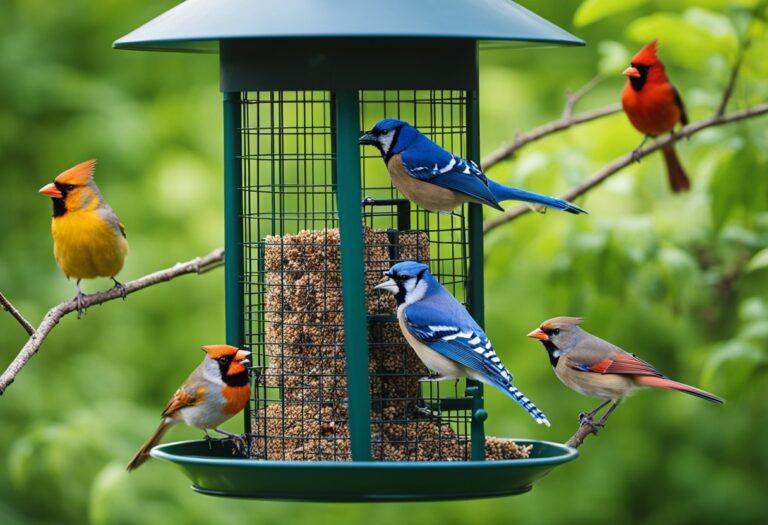You might be surprised by this question, but it’s one that both bird owners and curious food enthusiasts sometimes wonder about. Can you eat parakeet eggs? Yes, parakeet (budgie) eggs are technically edible for humans, though they’re rarely consumed due to their tiny size and the ethical considerations involved. I’ve researched this topic thoroughly to provide you with accurate information.

Parakeets, like many birds, can produce unfertilized eggs that won’t develop into chicks. These eggs contain similar nutrients to chicken eggs but in much smaller quantities. While parakeets themselves can safely eat eggs as a protein boost during molting or nesting periods, human consumption of these tiny eggs is uncommon and generally not recommended due to practical and ethical reasons.
Key Takeaways
- Parakeet eggs are technically edible but impractical for human consumption due to their very small size and limited availability.
- Eggs serve as excellent protein sources for budgies themselves during molting, nesting, or stressful periods.
- Ethical considerations regarding pet bird welfare should be prioritized over culinary experimentation with their eggs.
Nutritional Value of Parakeet Eggs

Parakeet eggs pack impressive nutritional benefits despite their tiny size. They contain essential proteins, vitamins, and minerals that contribute to a balanced diet.
Egg Composition and Benefits
Parakeet eggs, also known as budgie eggs, contain similar nutrients to other bird eggs but in smaller portions. The yolk is particularly nutritious, containing healthy fats and protein beneficial for birds. Unlike what some might think, these eggs are completely edible for humans.
I’ve found that parakeet eggs contain significant amounts of calcium and vitamin D3, which support bone health. The calcium content helps with bone formation and maintenance.
These miniature eggs also contain essential minerals that contribute to overall health. While small, each egg provides a concentrated source of nutrients including:
- Protein for muscle development
- Healthy fats for energy
- Vitamins A, D, E, and B complex
Comparison to Chicken Eggs
When comparing parakeet eggs to chicken eggs, the most obvious difference is size. A parakeet egg is roughly 1/10 the size of a standard chicken egg, meaning you’d need several to equal the nutritional value of one chicken egg.
I’ve observed that the nutritional profile is similar between both types, though in different proportions. Parakeet eggs contain a higher ratio of yolk to white compared to chicken eggs, making them proportionally richer in certain nutrients.
The taste is generally comparable to chicken eggs, though some describe parakeet eggs as having a slightly more delicate flavor. Due to their small size, they cook much faster than chicken eggs.
From a practical standpoint, the tiny size means they’re rarely consumed by humans despite being safe to eat. Interestingly, parakeets themselves can eat cooked eggs as they provide excellent nutrition for the birds.
Culinary Uses and Preparation

While parakeet eggs are small, they can be prepared using similar techniques as chicken eggs but with adjustments for their tiny size. They require gentle handling and shorter cooking times.
Safe Cooking Techniques
Parakeet eggs should always be thoroughly cooked to eliminate any risk of harmful bacteria. I recommend hard boiling them as the safest method. Place the eggs in a small pot with cold water, bring to a gentle simmer, and cook for just 3-4 minutes – much less than the typical 9-10 minutes for chicken eggs.
Soft boiling is another option, requiring only 2-3 minutes of cooking time. After cooking, I suggest cooling the eggs immediately in cold water to stop the cooking process and make peeling easier.
Never consume raw parakeet eggs as they may contain salmonella or other harmful bacteria. This is especially important with eggs from pet birds rather than those raised specifically for consumption.
Incorporating Eggs into Diet
Egg food made from boiled eggs is actually more commonly used as nutritious food for budgies themselves rather than for human consumption. However, if preparing parakeet eggs for human consumption, their small size makes them ideal as garnishes or added protein in dishes.
I find they work well:
- Chopped in salads for protein
- Added to grain bowls
- Used as tiny deviled eggs for appetizers
- Mixed into fried rice dishes
Due to their size, you’ll need several parakeet eggs to equal the volume of one chicken egg. About 8-10 parakeet eggs equal one chicken egg in recipes, though the exact flavor is slightly different – often described as more concentrated.
I suggest starting with familiar preparations like hard boiled eggs before experimenting with more complex recipes.
Health and Dietary Considerations

Eating parakeet eggs involves important health considerations for humans. These tiny eggs offer nutritional benefits but also require attention to personal dietary needs.
Allergies and Intolerances
I want to stress that some people may experience allergic reactions to parakeet eggs, similar to chicken egg allergies. If you have known sensitivities to poultry products, approach parakeet eggs with caution.
Signs of egg allergies include:
- Skin rashes or hives
- Digestive discomfort
- Respiratory issues
- Swelling around the mouth
The proteins in parakeet eggs aren’t vastly different from those in chicken eggs, so cross-reactivity is likely. I recommend consulting with a healthcare provider before trying parakeet eggs if you have any existing food allergies.
For those with less severe intolerances, start with a very small amount to test your body’s reaction.
Balanced Diet for Humans
I believe parakeet eggs can be a nutritious addition to human diets when consumed as part of a varied meal plan. These tiny eggs contain beneficial minerals like calcium and may offer some vitamin D, though in smaller amounts than larger eggs.
The nutritional profile is similar to other bird eggs but in smaller portions. I’ve found they work well combined with vegetables like carrots and broccoli in small omelets or scrambles.
For optimal health benefits, I recommend:
- Limiting consumption to occasional treats
- Pairing with fruits and vegetables for balanced nutrition
- Ensuring proper cooking to eliminate potential pathogens
Remember that while nutritious, parakeet eggs shouldn’t replace your regular protein sources or pelletized food supplements if you take those.
Environmental Concerns
When considering parakeet eggs as food, several ethical questions arise about our relationship with pet birds and sustainability implications that deserve careful thought.
Consuming Parakeet Eggs
Eating parakeet eggs is generally viewed as unethical by animal advocates. I believe that consuming eggs from pet parakeets or budgies creates a complex ethical situation – these birds are companions, not food sources.
Many parakeet owners develop strong bonds with their pets. Taking their unfertilized eggs for consumption could be seen as exploitative of the bird-human relationship.
Unlike chickens bred specifically for egg production, parakeets and other small birds haven’t been selectively bred to maximize egg output. Their laying cycles are natural and less frequent.
Some ethical perspectives argue that any use of animal products as food inherently treats the animal as a production unit rather than a sentient being deserving respect.
Sustainability Perspectives
From a sustainability standpoint, parakeet eggs offer minimal benefits. The tiny size of these eggs means I’d need many to equal even one chicken egg – an inefficient food source by any measure.
Parakeets in captivity require specialized care including proper housing, temperature control, and high-quality bird seed. The resources used to maintain these birds far outweigh any potential food value from their eggs.
Wild bird populations, including wild parakeet relatives, face threats from habitat loss and climate change. I think promoting any consumption of wild bird eggs could potentially encourage harmful collection practices.
A more sustainable approach would be to focus on plant-based alternatives or properly sourced chicken eggs from ethical producers if animal products are desired.
Environmental concerns associated with egg production in general – including feed production, waste management, and carbon footprint – would still apply, albeit on a smaller scale, to parakeet eggs.
Frequently Asked Questions
Parakeet eggs raise many curiosities from safety and nutrition to preparation methods. These tiny eggs have unique properties that differ from common poultry eggs you might find in grocery stores.
Are parakeet eggs safe for human consumption?
Yes, parakeet eggs are technically safe for humans to eat. They don’t contain harmful toxins or substances that would make them dangerous for consumption.
However, these eggs are not commercially produced for human food. This means they haven’t undergone the same safety testing and regulation as chicken eggs from farms or stores.
I recommend only consuming parakeet eggs from birds you personally care for and know are healthy.
What is the nutritional value of eating parakeet eggs?
Parakeet eggs contain similar nutrients to other bird eggs but in smaller amounts due to their tiny size. They provide protein, vitamins, and minerals.
Interestingly, some descriptions suggest they have a unique “nutty” and “very sweet” taste compared to chicken eggs. However, you would need many parakeet eggs to equal the nutritional value of a single chicken egg.
Their small size makes them impractical as a significant protein source in human diets.
How should parakeet eggs be prepared for eating?
If you decide to try parakeet eggs, you can prepare them similar to quail eggs due to their comparable size. Boiling is the simplest method – just for a shorter time than chicken eggs.
You could also try them fried or scrambled, though their tiny size makes handling difficult. A single parakeet egg would be barely visible on a plate.
I recommend cooking them thoroughly to eliminate any potential bacteria, just as you would with any egg.
Is there any cultural significance to consuming parakeet eggs?
There’s very little documented cultural significance to eating parakeet eggs in mainstream culinary traditions around the world. Unlike chicken, duck, or quail eggs, parakeet eggs don’t have established roles in traditional cuisines.
This lack of culinary tradition exists primarily because parakeets produce so few eggs, making them an impractical food source for communities.
Are there any health concerns associated with eating parakeet eggs?
The main health concern with parakeet eggs comes from potential bacterial contamination, similar to other eggs. Since they’re not produced commercially for food, they don’t undergo food safety testing.
Another consideration is that taking eggs from pet parakeets may cause stress to the birds. Eggs are also important for breeding birds during nesting periods, so removing them impacts their natural behaviors.
I advise against consuming eggs from unknown or potentially unhealthy birds.
What are the culinary uses of parakeet eggs in different cuisines?
Parakeet eggs don’t have established culinary uses in world cuisines. Their extremely small size and limited availability make them impractical for cooking.
While some exotic egg enthusiasts might experiment with them, you won’t find parakeet eggs on restaurant menus or in cookbooks. The effort required to collect enough for even a small dish would be substantial.
Interestingly, the reverse is more common – eggs are actually fed TO parakeets as a good source of protein rather than taken from them for human consumption.






